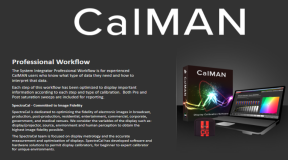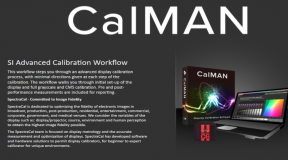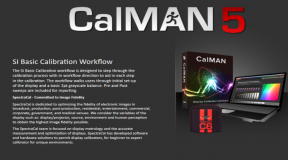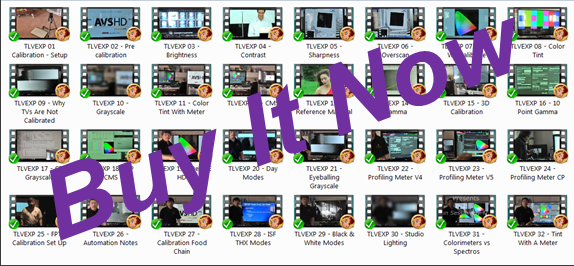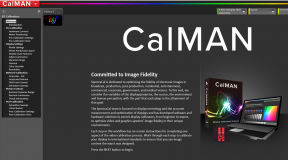The title says it all, is calibration worth it, and this is the age old question that so many ask themselves along with the question of “why are we here?”
While we are at this, let’s add a number of other useless entirely subjective questions like:
Is it worth it to go to the moon?
Is it worth it to climb Mt. Everest?
Is it worth it to buy a BMW?
Is it worth it to try snowboarding?
Can I stop now? Mind you, when people ask questions like this, they don’t take the time to actually think about what they just asked.
 My father, who is both a source of much love and angst, views the world in the following way, distorted as it might be. When he was working as a professional engineer, he was worth every penny of the $60/hr he charged. Now everyone else’s time and efforts are only worth $4/hr to him. Dentists should only charge him that. Doctors should only charge him that. The people that re-shingled his roof should only charge that …
My father, who is both a source of much love and angst, views the world in the following way, distorted as it might be. When he was working as a professional engineer, he was worth every penny of the $60/hr he charged. Now everyone else’s time and efforts are only worth $4/hr to him. Dentists should only charge him that. Doctors should only charge him that. The people that re-shingled his roof should only charge that …
Well it turns out that he isn’t the only one out there with a distorted view on the world. Apparently, no one else is permitted to make a living except him.
When I have a plumbing disaster at home with water spraying all over, I do not bicker with the plumber about the $150 emergency house call that he makes. It also does not matter to me if he fixes the problem in 5 minutes or less. I’m paying for a result and his experience and the cost more than justifies me not taking the time to learn how to do this and get the appropriate equipment for the job.
It is probably very human of us to value the cost of our own time as high and the cost of others as low.
Is a lawyer justified in charging what he does?
Is a doctor justified?
Is an engineer justified?
Is a mechanic justified?
Is a carpenter justified?
Is a plumber justified?
It’s all relative and dependent on how urgent you need their services. If you are up on murder charges, perhaps you are not thinking about hiring the $30/hr lawyer versus the $500/hr lawyer.
Worth is relative. It is tied directly into something called a value judgement. It is entirely subjective rather than objective. Is a BMW vehicle worth it? Well one person will tell you yes, most definitely and another will say they are not. The question to you is … who is correct here? If you can figure this out, you can figure out the answer to “life, the universe and everything.” This is like that other subjective question that people considering calibration always ask themselves too. “Will they see a difference?”
I can’t promise anyone anything of the kind, but I will say that the “man with the baseball bat” hated the calibrated picture before he loved it. The calibrated picture never changed. (For more on this, see the article on Hit and Run Calibrations) What really changed was his frame of reference, his perspective.
Calibration is a want … it is not a need. No one needs to get their TVs calibrated. People’s lives do not depend on this in the movie industry … although an uncalibrated display in the medical field could mean not seeing things like tumors on x-rays. If you want to get the most accurate presentation of programming material on your TV, then you have to go through the “calibration door.”
If I want a porsche, I have to be able to afford one, or I have to be willing to build one myself if I think they are over priced, but I still want one.
To get the most out of a television set in the only way that is quantifiable and measurable, we need to get the TV to meet the image standards set out by SMPTE. (For more information on this, go read the article on “Why We Calibrate … Myths”). Remember that 99% of TV owners do not care about this part. It is not a priority in life for them and that is okay. People have different priorities as some love home theater (me) and some love to snowboard (not me) and that is okay. This is what life is all about.
So for those that want to see an accurate image on their TV, they have the following options:
1. Lament and pout about it and how unfair the world is. (See article on Why TVs are not Calibrated)
2. Learn how to do it themselves and buy the hardware and software needed to accomplish this.
3. Hire a professional calibrator if they value their own time more than the cost of a professional.
In all cases, no one holds a gun to your head to say you must do this. I can stand back and lament about how there aren’t any top tier Lawyers that charge $20/hr. One can also lament about why mechanics charge me $40/hr instead of $6/hr.
On doing it yourself, you will need to get both hardware and software for doing this as well as spending a lot of time researching how to do it. Lowest cost of reliable hardware is $400-$500 (X-Rite ColorMunki Photo) and another $200 for the software (Calman DIY) to drive it. Now you are in it for $600. You will also need to spend a lot of time researching this and practicing. Possibly 100 hours or more. I read an interesting statement about how people value their time and everyone placed a value of more than $3/hr for that time. So if we figure $3/hr times 100 hours to research, then the cost of your time is at least $300 and now you are in it for $900. (Most professional calibrations will cost in the order of $350 to $450 including travel costs or sometimes not. They will have better gear than the DIY’er and they will likely have way better training and experience … but this part is debatable. )
An interesting side note here on my experience with the “DIY’er as client” from a professional calibration perspective. In all cases, the client tells me that they completely understood all the material that they researched on how to do things beginning with the basics like the user controls. So 100% of my DIY’er clients tell me they are certain they did everything correctly. I am being generous when I say half of these cases turned out to be mistaken. They may not have gotten every step of the way wrong, but made enough mistakes to make me take notice. The dilemma for me is what to believe when a DIY’er says he did it correctly, there is a 50/50 chance that he is wrong. Everyone says they do it correctly, but half of them end up doing it wrong in some manner that will matter. They just don’t realize it themselves.
I liken this to asking everyone out there to rate their skills as a driver and everyone says that they are good drivers. We still have accidents so clearly, some people are lying, or just that everyone’s own definition of “good” is different.
So buying both hardware and software is still no guarantee that the end result will be done correctly.
I won’t be going easy on the professional side of things either. Just like in the real world where there are good doctors and bad doctors; good lawyers and bad lawyers; good engineers and bad engineers; there are also more bad professional calibrators than good ones out there. The calibration education programs have helped see to that. On the ISF side of things, people going through that program do not really have to demonstrate their proficiency or competence in calibration to anyone after they finish the course. (THX requires that their calibrators submit 10 calibrations to demonstrate competence and requires continuing education as well as many hours of after class training time during the three day program where novice mistakes usually pop up) The problem with not having to demonstrate proficiency outside of the class is that if a person misunderstands a calibration concept (but does not realize it himself) the mistakes get passed onto all the TVs he works on and there is no oversight to the process. They continue to do things wrong, TV after TV. It never gets corrected. Experience in 100 TVs means little if a person did them all incorrectly.
So just like every other profession, it is up to the end user to figure out who is good and who is bad. Get references, talk to others that have used their services. Calibration is not a black art, a good calibrator should be freely willing to share information with you. Just as good doctors and mechanics exist, good calibrators exist too, one just has to look for them. Just be careful if a calibrator promises to you over the telephone or email that “you will see a difference” … because that is a lie.
You are at home and a friend on the road calls you up and asks for directions to New York City. Now you know where NYC is so you figure that you can help him out. You have to ask him something before you can help. That something is … “where are you right now?” His answer … “I don’t know, but I think I am close.”
Ask yourself how helpful that response is. What does it tell you? What does “close” mean? Close as in he is already in NYC? Close as in he is 20 feet from NYC? Close as in he is on Planet Earth.
A calibrated image is our destination. When one calibrates to that often enough and that is all they see, they get accustomed to the way it looks. They know the destination. The problem with talking with people over the phone is precisely what our cute story is about. The calibrator cannot possibly know what the starting point is.
Still think professional calibrators charge too much? Well this is a relatively free society and everyone is free to compete. Change the system and start to offer your own calibration services for $50, $100, $150 … and let the market place decide if you are right or wrong. This goes for Doctors and Lawyers and Engineers and Dentists and everyone else out there that offers a service and charge for it.
One could pay a calibrator hourly for his services or as a lump sum with time not a consideration only the end result. There are positives and negatives to both ways. Some televisions can be calibrated in as little as 10 minutes while others can take many hours. It’s human nature. A person picks the lump sum fee and then finds out the calibrator finishes the work in 10 minutes. He feels cheated and it is the fault of the calibrator. Or the calibrator finishes the job in four hours with the same result and he does not feel cheated. Same end result, so very human and no one is ever responsible for the consequences of their own actions. Everyone is a victim.
By the way, I don’t think a BMW is worth it, but I do not lament about it or try to convince those that do see value in the car to not buy it.
And a piece of string is exactly 13 inches … 😀
” STUPID should either hurt you or cost you … because that’s the only way most people learn” – One of Ray’s Theories of Life

